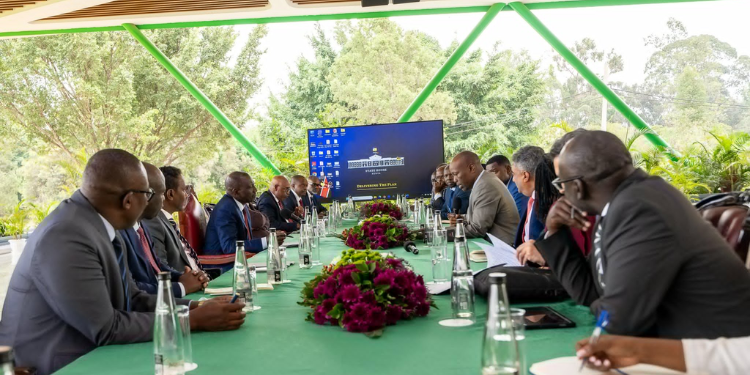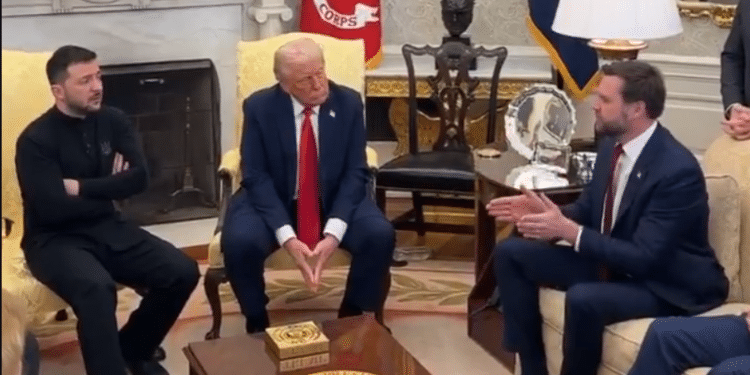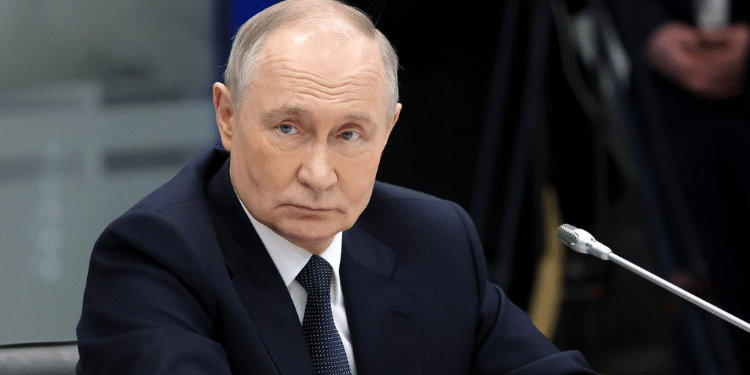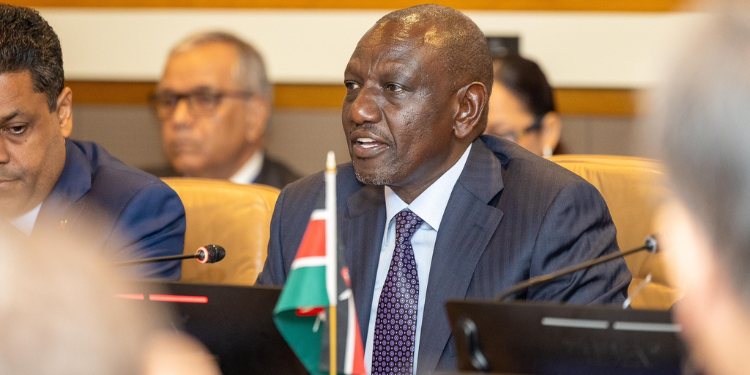President William Ruto held a consultative meeting with key players in Kenya’s apparel and textile sector to discuss the future of the industry amid growing concerns over the expiry of the African Growth and Opportunity Act (AGOA).
This piece of legislation is a trade agreement that was approved by the United States Congress in May 2000 to support the economies of sub-Saharan Africa and enhance economic relations between the U.S. and the region.
The deal has proved very valuable for countries such as Kenya and Lesotho, and its expiry leaves the fate of thousands of workers in uncertainty.
Ruto, in a statement on Thursday, October 2, reassured stakeholders in the apparel and textile sector of his administration’s commitment to securing a favorable outcome as the AGOA agreement expires.
President Ruto moves to calm job loss fears as AGOA expiry leaves thousands in limbo
Briefing the industry on his recent meeting with U.S. Secretary of State Marco Rubio, the President assured stakeholders that the government is working closely with the United States to secure both the extension of AGOA and the establishment of a more permanent trade framework.
“I briefed stakeholders on my recent discussions with U.S. Secretary of State Marco Rubio in Washington, where we explored not only the extension of AGOA but also the establishment of a long-term framework to guarantee stable and predictable market access for our products,” read part of the statement.
“This will go a long way in strengthening our apparel industry, which remains vital to our economy and the livelihoods of thousands of families.”
Also Read: Why MPs Want Ruto to Extend US Trade Deal for Next 16 Years
In the meantime, the Head of State assured them that operations in the industry will continue without disruption “as talks with the U.S. Government proceed with the urgency they deserve.”
The AGOA has, for 25 years, provided African goods with duty-free access to the U.S. market. This policy is, however, at odds with the President Donald Trump administration’s record of imposing tariffs.
The BBC had reported that a White House official confirmed the administration supported a one-year extension to the programme, but this has not yet been announced.
Envoys from various African countries, including Kenya, have traveled to the U.S. to negotiate an extension.
Last month, President Ruto lobbied for the extension in an address at the Kenya Investment Forum on the sidelines of the United Nations General Assembly (UNGA).
Considered the cornerstone of US-Africa economic relations, AGOA’s aim was to help industrialise the continent.
This was achieved through the creation of employment and lifting dozens of countries out of poverty. It was based on a philosophy of using trade to replace aid.
AGOA has been a cornerstone of Kenya’s export-led manufacturing strategy since it was first enacted in 2000, with the apparel industry being the biggest beneficiary.
AGOA’s contribution to the Kenyan economy
In 2024, Kenya led Sub-Saharan Africa in apparel exports to the United States, earning $600 million and creating 70,000 direct jobs for Kenyans. Ruto earlier said that his administration’s ambition is to surpass $2 billion by 2030.
The United States is Kenya’s largest source of Foreign Direct Investments (FDI). More than 150 American firms operate in Kenya, spanning IT, food and beverages, financial services, and manufacturing.
Also Read: Key Trade Deals Kenya Has Secured with Major Global Powers Under Ruto Govt
Landmark U.S.-backed projects—including the $700 million Lake Turkana Wind Power Project, the $320 million Kipeto Wind Farm, and the $445 million Olkaria III Geothermal Power Plant —have transformed the country’s clean energy landscape.
In addition, Kenya’s export processing zones (EPZs) have grown steadily under AGOA, hosting dozens of firms that produce garments for U.S. brands. Leading American brands, such as Walmart and Target, already source apparel from Kenya, while Calvin Klein and Tommy Hilfiger are partnering with Kenyan manufacturers.
With the expiry of the trade pact, industry leaders have expressed concern about possible loss of market share, job cuts, and reduced investment if a new arrangement is not put in place quickly.
Follow our WhatsApp Channel and X Account for real-time news updates













































































